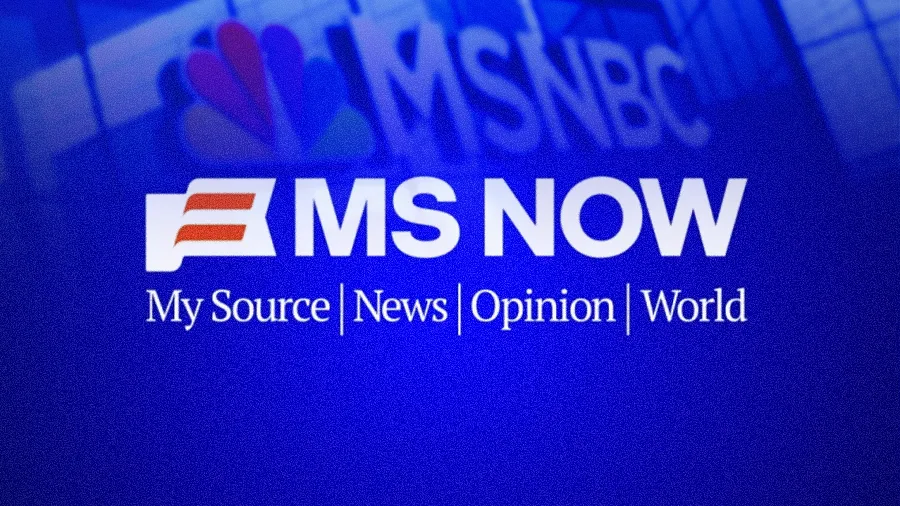MSNBC has announced it will be changing its name to MS NOW, an acronym for 'My Source for News, Opinion, and the World'. The move isn't a vanity play, but a corporate necessity, coming as parent company NBCUniversal prepares to spin off most of its cable networks into Versant. But while the rebrand was operationally driven, its execution sparked a wave of online ridicule, serving as a potent example of a broader trend: legacy media rebrands, often rushed out of necessity, risk missing a crucial cultural gut-check. The result is internal logic that makes sense in the boardroom but falls flat with an audience that acts as an instant jury.
To make sense of this we spoke with Tricia Melton, Co-Founder of the brand transformation consultancy Pith & Pixie Dust. As the former CMO for Global Kids, Young Adults and Classics at Warner Bros. Discovery and with past leadership roles at Turner and Disney's Freeform, Melton has spent her career navigating the high-stakes and nuances of brand evolution. For her, the key to avoiding misfires lies in how a brand chooses to use consumer insight.
- The role of research: "Research can serve different purposes. Some people lean on it for support, others misuse it or toss it aside, but its real value is in illumination. You don't have to live or die by it, but you can learn a lot just from talking to people," said Melton. "You can get a read on whether you're going in the right direction or whether there are guardrails that you should be paying attention to."
For Melton, the MS NOW situation is a textbook example of this principle in action. The move is driven by strategic impetus, but Melton saw an executional misstep, where a lack of "illumination" via research made the outcome almost predictable. The first shortcoming, she argued, was not stress-testing a new name against the unpredictable force of culture.
- Naming a child: "A rebrand is like naming a child. You have to step back and look at any potential misinterpretations, misspellings, abbreviations, unintended associations. You need to look at it through the context of culture, too." That cultural lens, Melton stressed, is what often separates a name that earns trust from one that invites ridicule.
- Equity lost: "Given NBC's restructuring and the spin off of Versant, they had to rebrand. I understand the need. When you're doing a rebrand like that for operational reasons, the goal is to retain the brand equity you've spent decades building." In practice, though, the execution didn’t fully deliver on that goal, leaving the brand vulnerable to questions about its continuity.
Neglecting to read the cultural room is not just a branding gaffe; it can lead to a costly erosion of brand equity built over decades. The HBO to Max to HBO rebrand saga is a prime example. The cost of such a strategic pivot is twofold, creating massive financial waste and profound audience confusion.
- Consumer whiplash: "The cost is significant," Melton noted. "They spent an incredible amount of money marketing a brand new product, and then all of that money and value was discarded. Not to mention, for the consumer, it's whiplash," she stated. "You run the risk of them feeling fatigued and confused, unsure of what exactly you stand for."
To avoid these pitfalls, even when time is short, Melton advised a disciplined process: a 'slow-down checklist' focused on strategy and validation. It’s about asking the right questions before a single design element is finalized.
- A slow-down checklist: "First of all, you need to understand the motivation. Why are we rebranding? What is the reason?" Melton advised. From there, the brand must consider every application. "How is it going to look in social? How is it going to look on a billboard? How is it going to look on a little tiny screen on my phone?" The final step is a gut-check to prevent unintended interpretations.
- Seeing the stop sign: This final "gut-check research" is about ensuring the intended message is received clearly. "I want to make sure that when people look at it, they're not seeing a red hexagon and interpreting it some other way. I want to make sure they're seeing a stop sign." [3.4.A]
Melton put this exact philosophy into practice with the successful rebrand of Turner Classic Movies (TCM), a project she led in 2021. It serves as a powerful case study in modernizing a legacy brand without losing its soul.
- Where then meets now: "We came to understand that classic film remains deeply relevant because our past informs everything," Melton said. "It has influenced modern art across film, television, music, and fashion. We rebuilt the strategy around that idea and developed the tagline, 'Where Then Meets Now,' which captured the cultural relevance of TCM."
While the MS NOW rebrand may not be a long-term disaster, it serves as a critical reminder that in the streaming era, rushed rebrands are judged instantly and harshly by audiences. For legacy media brands navigating necessary corporate transformations, the lesson is clear: slowing down to preserve equity and test for cultural resonance is a strategic imperative. As Melton put it, it's about entering the process with full awareness of the stakes. "There are a lot of reasons, good and bad, to do rebrands. Sometimes you absolutely have to. You just need to have your eyes wide open when you go into it."

